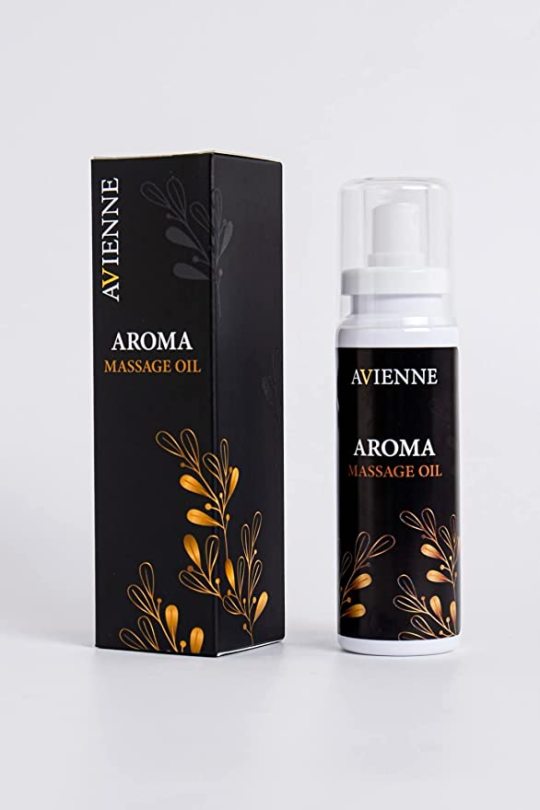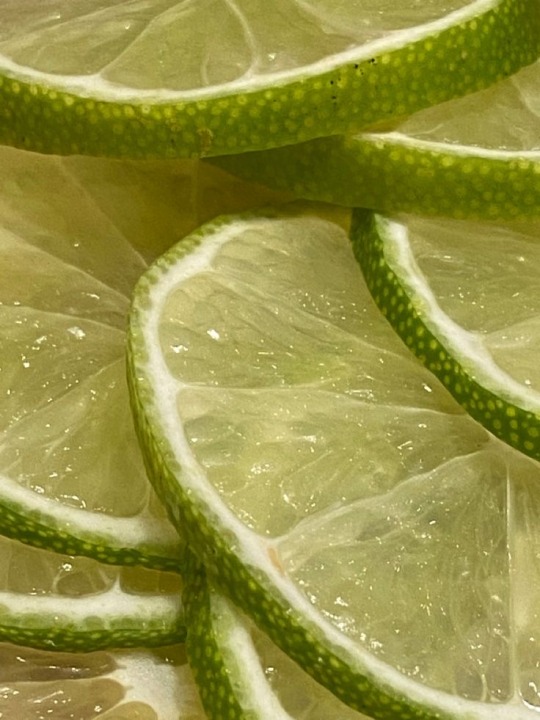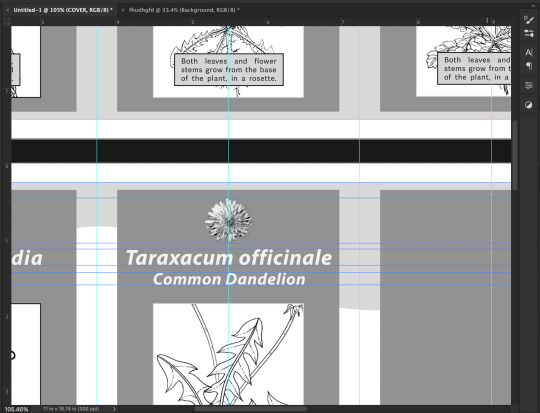#herbal oils
Text
https://joinwithgo.com/731905
Sell herbal oils
0 notes
Text

Aceso Oils and Herbs is one of the providers of the Best Herbal Oils. Improve your health and vitality with our superior natural extracts, skillfully formulated to support health. Take in the best of nature to feel refreshed. For more information visit our website!
1 note
·
View note
Text
The Potency of 190 proof alcohol and alcohol 200 proof
190 proof alcohol and 200 proof alcohol, often referred to as pure grain alcohol or ethanol, serve as crucial components in the production of tinctures, herbal medicines, and herbal oils. Their distinct properties make them valuable solvents for extracting and preserving the active compounds found in various plant materials.
In the realm of tincture production, these high-proof alcohols act as efficient solvents, enabling the extraction of a wide array of bioactive constituents from herbs. The potency of these alcohols helps break down cell walls and facilitate the release of essential oils, alkaloids, flavonoids, and other therapeutic compounds. The resulting tinctures are concentrated and have a longer shelf life due to their alcohol content, preserving the medicinal properties of the herbs.
For herbal medicine, 190 proof alcohol and alcohol 200 proofplay a pivotal role in creating potent and consistent formulations. These alcohols can extract both water-soluble and alcohol-soluble compounds, allowing for a comprehensive extraction of the plant's medicinal properties. Herbal medicines produced with high-proof alcohols tend to have faster absorption rates in the body, making them effective for addressing various health issues.
Herbal oils, on the other hand, are obtained by macerating plant materials in these alcohols, resulting in concentrated extracts rich in essential oils and other lipophilic components. These oils find applications in aromatherapy, topical treatments, and even culinary uses. The high alcohol content of alcohol 200 proof can efficiently extract volatile compounds that might be lost using lower-proof alcohols, leading to oils with intense fragrances and therapeutic effects.
190 proof alcohol and 200 proof alcohols are invaluable tools in the creation of tinctures, herbal medicines, and herbal oils. Their high alcohol content allows for efficient extraction and preservation of medicinal compounds from plants, yielding potent and long-lasting remedies. However, proper handling, dilution, and consideration of the specific plant material are essential to harness their benefits effectively and safely. Extractohol is the best source to buy 190 proof alcohol and 200 proof alcohol.
0 notes
Text
Herbal Oils: Types, Benefits, Usages, and Much More
0 notes
Text
Product Description: There are a number of beneficial compounds found in Arnica, specific helenalin, linoleic acid, palmitic acid, thymol, and various other ethers. This unique mixture gives the plant its powerful and well-known effects. While this plant should never be consumed orally, nor placed directly on open wounds, it has a wide range of topical uses. Arnica Herbal oils and creams are known to be herbal medicines, with dramatic results if used immediately after an injury, as this oil helps to speed the healing process by moving waste-filled fluids out of the body, and moving cleansing fluids into the affected area.
Cautions: Arnica should only be applied to unbroken skin as it is known to promote blood circulation and may increase bleeding of wounds and should not be used in aromatherapy.
Storage: Please store in dark glass containers to maintain freshness and attain maximum shelf life.
Caution: All of our products are for external use only.
0 notes
Text
Aroma Massage Oil for Pain Relief - Avienne
Treat your sore and tired muscles at home with our pre-blended Aroma Massage Oil. It is formulated with a unique blend to treat discomfort and pain. It is suitable for personal and professional uses. It can heal inflammation and reduce swelling with its diuretic action.

#massage oils#relief of pain#best massage oil#body massage oil#aroma#oil aroma#body & massage oil#aroma massage#aromatherapy massage oil#herbal oils
1 note
·
View note
Text
Safety in Witchcraft
What’s not talked about enough in the spiritual community is mundane safety along with spiritual. Critical thinking is vital. I wanted to share a lot of my personal rules for myself that I have adapted into my craft.
Fire safety, never leave an open flame unattended. Ever. Always burn in an open enough area with a fire safe dish or on ceramic tile away from animals and children. If you leave the room extinguish the flame. Do not sleep with fire going. I know we want to keep that spell going even during a nap but sometimes we don’t wake up in time for danger. This is absolutely vital to keep you safe. It won’t ruin a spell I promise or anger anything. Please do not add those herbs to that candle. I know it’s nice and pretty but that is a fire hazard. Stay safe.
On that note always have an open window or a well ventilated area when burning items. That goes for herbs, incense, or candle. Smoke inhalation can ruin your lungs.
Rodents, reptiles, birds, any animal is sensitive to scents and have small respiratory systems. Be careful using anything around them. Research what can be used around them. I mean research! Cross reference. Use veterinarian hospital guides, not pro essential oil blogs. Please don’t put any essential oils on your pets. They can be seriously harmed.
Moon water actually molds, very easily. So can herbal blends if not stored correctly. Check frequently and use before end of date. Distilled water is your friend to prolongs shelf-life along is storing in a cold dark place.
Witchcraft and magic is not a replacement for medical treatment and medically prescribed medication. It absolutely can aid your treatment but it is never a replacement.
Do not ingest any herbal remedies without consultation with your doctor and/or Herbalist. Especially if you have pre-existing conditions and need to take medications for it. Things can conflict and are deadly.
Also forage responsibly. Unless you are 100% certain what you have foraged is the correct plant. Don’t even chance it. It’s not worth sickness or in worst cases death.
Do NOT ingest essential oils. I don’t care what you have heard from pro essential oil pages. The distillery methods are not safe for ingestion. It can tear up your stomach lining and throat. Cause extreme nausea and vomiting. Seizures and in worst cases death.
Some covens and practitioners are not your friends. Be cautious and use stranger danger. Be cautious and never give out all of your personal information online. There are predatory people everywhere, including in this community. Please be safe. Always use your gut instinct.
Please feel free in the comments and tags to add important safety pointers you have.
651 notes
·
View notes
Text

My collection of Scott Cunningham works I have read so far:) - more coming soon! Just bought six books of his
#witchblr#witchcraft#baby witch#witch#witch community#witchcraft community#magick#nature#crystals#magic#books#Wicca#beginner witch#witchtips#witchcraft books#divination#meditation#Scott Cunningham#earth power#elements#earth air fire water#oils#incense#brews#herbal#herbs#gems#rocks#minerals#Wicca in the kitchen
54 notes
·
View notes
Text

I found this picture of James with 8 polish fans that invited Metallica to drink vodka with them after a concert
The picture was taken February 10th to 11th at night, 1987
#metallica#james hetfield#80s james#mop era#amsmuch's thoughts#this is so funny#2 dudes that knew english just enough#went up to them and invited james to drink with them#and they got some herbal vodka#that apparently stasted like motor oil
126 notes
·
View notes
Text
Oils and their ritual correspondences Part 5
🍋🍃 Bergamot: In herbal folklore, it is said that the oil of Bergamot leaves, when rubbed on money, will ensure the return of riches; it is also well known for prosperity spells.
✨Planetary rulerships: Mercury


#baby witch#beginner witch#green witch#pagan witch#spellwork#witch aesthetic#witchcore#witchcraft#witchythings#witchyvibes#witchblr#herbal correspondences#bergamot#cleansing spell#protection spell#spell craft#hoodoo oil#essential oils#autumn equinox#autumn season
126 notes
·
View notes
Text

Het Blauwe Huis in Ruinerwold, the Netherlands
#shop in source#organic homegrown herbs and spices and herbal oils#ruinerwold#drenthe#het blauwe huis#the netherlands#farmcore#country life
75 notes
·
View notes
Text
Aromatherapy for Processing Trauma

Aromatherapy uses scent, usually in the form of essential oils, for physical and emotional well-being. Our sense of smell is very closely connected to memory, and certain smells can have an effect on our emotions and mood.
Essential Oil Safety and Ethics
Because this is the Internet and because certain multi-level marketing corporations have intentionally spread misinformation about essential oil safety, let's talk about a couple of things real quick.
You should never, ever eat or drink essential oils. These are very concentrated extracts of the active compounds from plants, and just like you would never sit down and eat 200 pounds of lavender, you shouldn't eat lavender oil. Ingesting essential oils can have very serious side effects, up to and including organ failure and death. Just don't.
If you want to work with a liquid plant extract that you can take internally, I recommend trying a tincture or a tea.
Use caution when applying essential oils topically. Again, essential oils are very concentrated, so they can cause skin reactions even if you are not normally allergic to the plant they come from. Always do a patch test to check for an allergic reaction before applying an essential oil to your skin or putting it in a bath. Some, like cinnamon oil, should never be used topically.
Always dilute your oils. Whenever you put essential oils on your skin, mix them with a carrier oil (like olive oil or coconut oil). Typically for adults you want to only use two drops of essential oil for every teaspoon of carrier oil, but you might use a stronger or weaker concentration depending on your body and your needs. If you're adding essential oils to your bath, make sure you mix them into a bath salt (either Epsom salt or plain table salt) before adding them to the water.
When you diffuse essential oils, make sure you don't use too much. For a typical aromatherapy diffuser, you really only need 1-5 drops of oil.
Be careful using essential oils around children and pets. Contrary to what some MLMs say, essential oils may not be safe for your baby or your dog. If you have kids, make sure your oils are stored out of their reach. Don't diffuse essential oils around babies under 6 months old, and don't apply oils to the skin on children under 3 years old. If you use essential oils on your older child's skin, they should be TWICE as diluted as for an adult (so you would use HALF as much essential oil for the same amount of carrier oil). If you diffuse oils around your kids, don't run the diffuser for more than 60 minutes. Follow other essential oil safety rules.
If you have a pet in the house, only diffuse essential oils in open, well-ventilated rooms, never let the diffuser run for more than 60 minutes, and make sure your pet is able to leave the room if they want to. Never apply essential oils to a pet's skin. Research your oils to make sure they aren't toxic to your pets.
Moving from safety concerns to ethics concerns, don't use essential oils in public spaces. Many people don't tolerate these scents well because of health conditions, allergies, or chemical sensitivities. For this reason, you should only practice aromatherapy in your own private space.
Try to be an eco-conscious consumer. It takes a whole lot of plant material to make essential oils -- one pound of lavender oil requires 250 pounds of lavender buds! That's a lot of natural resources. Even "wildcrafted" or "wild harvested" products may still be contributing to overharvesting. Try to limit your environmental impact by using oils sparingly, avoiding oils made from endangered plants, buying from companies that use sustainable harvesting practices, and reusing or recycling the bottles.
Making Aromatherapy Trauma-Sensitive
Because scent is so strongly connected to memory, scents that remind us of a traumatic event can trigger anxiety or panic, or even make us physically ill. Before using aromatherapy, think carefully about the scents you feel drawn to and whether they may be triggering for you.
For example, if your abuser wore a floral perfume with rose and geranium notes, the scents of rose and geranium might activate your fight or flight response, even though those are usually considered calming scents. If your abuser wore a cologne or deodorant with a lot of woodsy notes, you might want to avoid woodsy essential oils like cedarwood.
If at any point you start to feel triggered or activated when using aromatherapy, stop using that scent until you can speak to a therapist or counselor about your experience.
Helpful Essential Oils for Trauma Survivors
Note: Much of the information in this section comes from Elizabeth Guthrie's book, The Trauma-Informed Herbalist.
Lavender (Lavandula angustifolia): The ultimate relaxing scent. Guthrie says that lavender "allows a person to completely relax. It is a wonderful tonic for a person who has been overthinking situations." Lavender is really helpful for anxiety and paranoia, especially if your anxiety takes the form of doom spiraling or thinking about worst case-scenarios.
Cedarwood (Cedrus virginiana): An excellent grounding scent. Guthrie says that cedarwood "is loved for its ability to help people reconnect to themselves." Be aware that Atlas Cedarwood (Cedrus atlantica) is endangered due to overharvesting -- try to use more sustainable varieties.
Rosemary (Rosmarinus officinalis): Great for mental clarity. Rosemary strengthens memory, and it can be useful for people who struggle with short-term memory or who are dealing with brain fog or gaps in memory as a product of trauma. Rosemary promotes alertness.
Clary Sage (Salvia sclarea): Promotes a sense of well-being and helps decrease feelings of stress.
Sweet Marjoram (Origanum majorana): Brings balance to the body and mind. Marjoram has a relaxing effect and can help release tension.
Geranium (Pelargonium graveolens): Another relaxing scent. Guthrie says that geranium "can also help a person who is feeling jumpy, as if they're living in a horror movie and a jump scare is just around the corner."
Chamomile (Anthemis nobilis): Reduces anxiety and relieves feelings of depression. Chamomile also famously helps with sleep issues such as insomnia.
Patchouli (Pogostemon cablin): Very strong grounding. Guthrie recommends patchouli to help reset the sleep-wake cycle for people struggling with insomnia and/or fatigue.
Bergamot (Citrus bergamia): Balances emotional energy and uplifts the mood. Guthrie recommends it for brain fog from exhaustion and for aid in letting go of anger.
Eucalyptus (Eucalyptus globulus): A superstar for healing, whether physical, mental, emotional, or even spiritual. Guthrie recommends eucalyptus "to jumpstart the emotional healing process" and "to release the feeling that their trauma is part of their identity."
Sweet Orange (Citrus sinensis): An uplifting and energizing scent. Great for bringing up the mood, promoting happiness, and helping with burnout.
Aromatherapy on a Budget
Listen, y'all. Essential oils are expensive. Ethically sourced essential oils are even more expensive. I save some money by 1.) using essential oils sparingly, and 2.) buying pre-mixed blends. I'll typically look for a blend that contains several oils that I want to work with instead of buying each oil individually. Right now I'm working with the "Harmony" synergy blend from Eden's Garden, which contains lavender, cedarwood, rosemary, clary sage, sweet marjoram, geranium, and chamomile.
If you can't find a blend that has all the qualities you want, you can still save money by buying a blend with most of the qualities you're looking for, then adding one or two low-cost oils. For example, I wanted a slightly more grounding effect than the blend I'm using has, so I add a little bit of patchouli oil to bring in that earthy, grounding quality.
Sources:
The Trauma-Informed Herbalist by Elizabeth Guthrie
"5 Benefits of Clary Sage Oil" by Corey Whelan
"Marjoram Essential Oil" on AromaWeb
"The 8 Proven Benefits of Chamomile Oil and How to Use It" by Jill Seladi-Schulman, Ph.D.
"Essential Oils & Pets" on Saje
"Are Essential Oils Safe for Kids?" by Teresa Carr
#smell goods do a lot and should not be underestimated#aromatherapy#essential oils#trauma#trauma survivor#trauma processing#trauma informed#the body keeps the score#herbalism#herbs#lavender#cedar#cedarwood#witchblr#witch#witchcraft#green witch#green witchcraft#cottage witch#kitchen witch#kitchen witchcraft#ptsd#complex trauma#complex ptsd#cptsd recovery#abuse tw#my writing#long post#recovery#plant magic
300 notes
·
View notes
Text


𝑷𝒓𝒐𝒔𝒑𝒆𝒓𝒊𝒕𝒚 & 𝑱𝒐𝒚 𝑯𝒆𝒓𝒃𝒂𝒍 𝑰𝒏𝒇𝒖𝒔𝒆𝒅 𝑶𝒊𝒍
Hello witches, I want to share with you a recent magic oil I made for candle dressing & spell making🕯✨️ you can also use it for your overall craft,
You'll need:
🌼 Chamomile
🌼 Calendula Flower
🌼 Lavender
🌼 Clove Powder (*can be replaced with whole clove)
🌼 Copal Incense (*I used copal resin for a concentrated infusion)
🌼 Carrier Oil (*I used olive oil)
🌼 Small Jar
Instructions ~
Cleanse your jar with salvia/sage incense, or cleanse with your preferred method,
Gather your dry ingredients into your jar: the chamomile, calendula flower, lavender, love & copal resin,
Set your intentions for your herbs, I like using my hand over each herb before putting them inside the jar, guiding each herb with which correspondence or property I'll need,
Pour in your carrier oil of choice, do it slowly allowing the oil to get to the bottom, this will get rid of any air bubbles,
Say your last intentions for the overall oil, close with the cork or cover, and let it sit for a few days to allow the infusion to set in,
When the oil is done resting, pour your concentration infusion unto another bigger jar without the herbs, it's okay if bits go in though,
Finally, top off the remaining or the jar with more olive oil,
And that's it! Your Prosperity & Joy Oil is ready for use, whether you want to dress a yellow candle to bring joy, happiness, prosperity & clarity to your daily life, or use topically before bed, etc.,
*Please note that this or any oil infusion posted here is NOT meant to be ingested/eaten, keep away from children & animals !!
Happy Crafting!
#wicca#witchcraft#white spell#spell#prosperity#prosperity spell#magic#witches#witch#pagan#eclectic#spells#spellcraft#clarity#copal#chamomile#lavender#calendula#happiness#green witch#witchy oil#infused herbal oil#herbs#candle magick#good luck#joy#witches of tumblr#witchblr#witch blog#witchy vibes
19 notes
·
View notes
Text
Organic Cane Alcohol for Making Tinctures, Herbal Oils, and Natural Medicines
Organic cane alcohol and cane alcohol are commonly used in the process of making tinctures, herbal oils, and natural medicines. These alcohols serve as powerful solvents that effectively extract the beneficial compounds from herbs, plants, and other natural ingredients.
Organic cane alcohol is derived from sugar cane and is produced using organic farming methods, ensuring that the sugar cane used is free from synthetic pesticides, herbicides, and genetically modified organisms (GMOs). This makes it a preferred choice for individuals seeking organic and sustainable options in their herbal preparations. The organic nature of this alcohol ensures that no harmful chemical residues or contaminants are introduced into the final product, making it suitable for those who prioritize purity and natural healing.
Cane alcohol, on the other hand, is made from sugarcane and may or may not be sourced from organic farming practices. While it may not carry the organic certification, it is still widely used in the preparation of tinctures and herbal remedies due to its high alcohol content and extraction capabilities.
Both organic cane alcohol and cane alcohol act as excellent solvents for extracting the medicinal properties of herbs and plants. The alcohol dissolves and extracts the active compounds, such as essential oils, flavonoids, alkaloids, and other beneficial constituents, effectively preserving their potency and therapeutic value.
When making tinctures, herbal oils, or natural medicines, the choice of alcohol depends on individual preferences and requirements. Organic cane alcohol is often favoured by those seeking a certified organic option and is conscious of sustainable practices. In conclusion, both organic cane alcohol and cane alcohol play vital roles in the creation of tinctures, herbal oils, and natural medicines. They are effective solvents that extract the beneficial compounds from herbs and plants, allowing individuals to harness their healing properties in a concentrated and easily consumable form. The choice between the two depends on personal preferences and the specific needs of the herbal preparation.
Visit the website Extractohol to buy premium quality cane alcohol for producing tinctures, herbal oils, and natural medicines.
0 notes
Text
Whipped up some witchy herbal oil for sore muscles yesterday. It was great to be back in my kitchen working my craft!!

20 drops lavender oil
20 drops chamomile oil
20 drops mint oil
15 drops organic coconut oil
Simmer together in Bain Marie for 20 mins with a pain banishment spell 💚💚
#greenwitch#housewitch#folk witchcraft#herbalism#witch#witchcraft#craftrecipes#essential oils#naturaloilrecipes#witchblr
7 notes
·
View notes
Text

I'm making plant ID brochures for my talk tomorrow. i'm discussing common "weeds" that you find in the garden that are useful either for food, medicine, or craft.
#by “medicine” i mean like... you can make an herbal-infused oil that can be used topically for dry skin#you ain't using dandelion to treat liver disease#ANYWHO would this be something y'all are interested in?#not brochures but like. . . info charts and shit#perhaps a comic format idk
15 notes
·
View notes